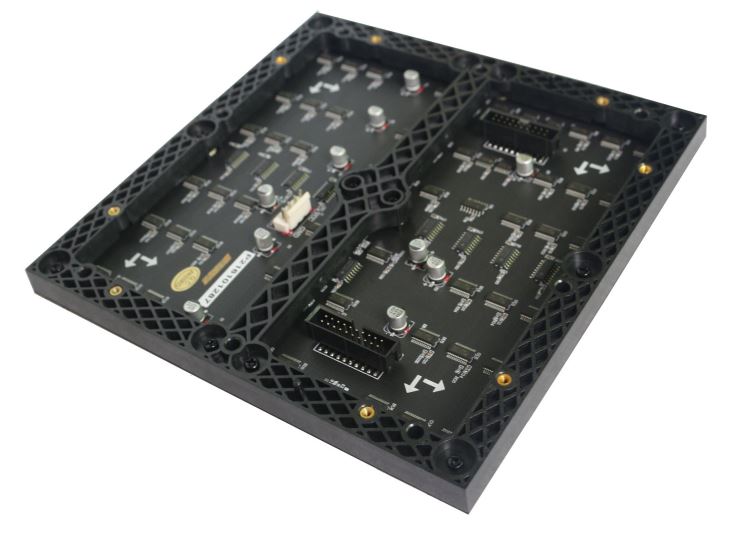Astronomers at Lawrence Berkeley National Laboratory are preparing for a bold plan: use 5,000 tiny robots to point to space and explore the universe we have never seen before.
These robots are part of the Dark Energy Spectroscopic Instrument (DESI). They are about 25 centimeters in length and will be installed in the Mayan National Observatory (Arizona) Maya telescope in 2018.
Each cylindrical robot has a fiber-optic cable with a core that is only one-seventh of a millionth wide and accurately points to a specific object in the night sky, capturing their light. Most of these celestial bodies are distant galaxies, and there are also a few stars and quasars.
The difficulty in project implementation is to make all robots move in unison. They are tightly packed together and when they move to a new location (several times per hour), they can collide with each other. To avoid this, a scaled-down system of 10 robots will be installed on the telescope in August and September this year. This test is called "Proto DESI", and scientists will use this to debug the robot and the software that controls the robot.

“ProtoDESI will show how the software and positioning controller work together,†said ParkerFagrelius, who is responsible for the project at Berkeley Labs. “Everything learned from the ProtoDESI test will be applied to the DESI program.†Once all 5,000 robots When installed, astronomers can calculate the speed at which different galaxies and quasars are far from the Earth.
Using this data, we will be able to go back to the history of the universe in more detail. We can also use this to create a three-dimensional map of the universe and a glimpse of the mystery of dark energy. Dark energy plays a very important role in the accelerated expansion of the universe. In addition, we will further deepen our understanding of dark matter, the early universe, and the structure of our Milky Way.
Short Description:P2mm Indoor LED Module,256mmx128mm P2mm Indoor LED Panel with 128x64 pixels. Model:ERALED-P2-Indoor-128X64; 5 Years Warranty with NICHIA/CREE/NATIONSTAR/EPISTAR/SILAN gold wires LED lamps,1.6cm thickness PCB,MBI5153 Driving IC ;UL,CE,RoHS,FCC,3C,ISO Approved;
Fine pitch Indoor LED Module
256x128mm,128x64 pixels RGB full color SMD UHD P2mm Indoor LED display Module |
||
|
Module Specifications |
||
|
1 |
Pixel Pitch |
2mm |
|
2 |
Pixel Configuration |
SMD3in1 |
|
3 |
Module Resolution |
128x64 pixels |
|
4 |
Module Pixles |
25,000 pixels |
|
5 |
Module Size |
256x128mm |
|
Specifications |
||
|
1 |
Screen Brightness |
≥1000cd/m2 |
|
2 |
Driving Method |
1/32 scan |
|
3 |
Mini Viewing Distance |
2m |
|
4 |
Max. Power Consumption |
750W/m2 |
|
5 |
Average Power Consumption |
320W/m2 |
|
6 |
Gray Level |
14bits input, 4096 levels(212) |
|
7 |
Display Color |
16M |
|
8 |
Frame Frequency |
≥60Hz |
|
9 |
Refresh Frequency |
≥1920Hz |
|
10 |
Uninterrupted Working Hours |
≥72 hours |
|
11 |
Screen Life-span |
≥100,000 hours |
|
12 |
MTBF |
≥5,000 hours |
|
13 |
Discrete Blind Spot Rate |
<1/10000 |
|
14 |
Continuous Blind Spot Rate |
None |
|
15 |
Blind Spot Rate |
<1/10000 |
|
16 |
Screen Plainness |
<±1mm |
|
17 |
Power Supply Mode |
AC220±10% 50Hz/AC110±10% 60Hz |
|
18 |
Environment Temperature & Humidity |
Temperature:-20 Celsius~+60 Celsius |
|
19 |
Control Mode |
Synchronous display with control PC by DVI |
|
20 |
Control System |
DVI video card + full color control card + fiber system( optional) |
|
21 |
Display Content |
Video, DVD, VCD, TV, picture, cartoon, graphics, texts.etc. |
|
22 |
Interface |
Standard Ethernet |
|
23 |
Transmission Distance |
Multi mode fiber <500m, single mode fiber <30km,internet cable <100m |

Fine pitch Indoor LED Module
High Power Led Module,Soft Flexible Led Display Screen,Pitch Led Display Screen,Curved Led Display Screen
Shenzhen Joy LED Display Co., Ltd. , https://www.joe-led.com